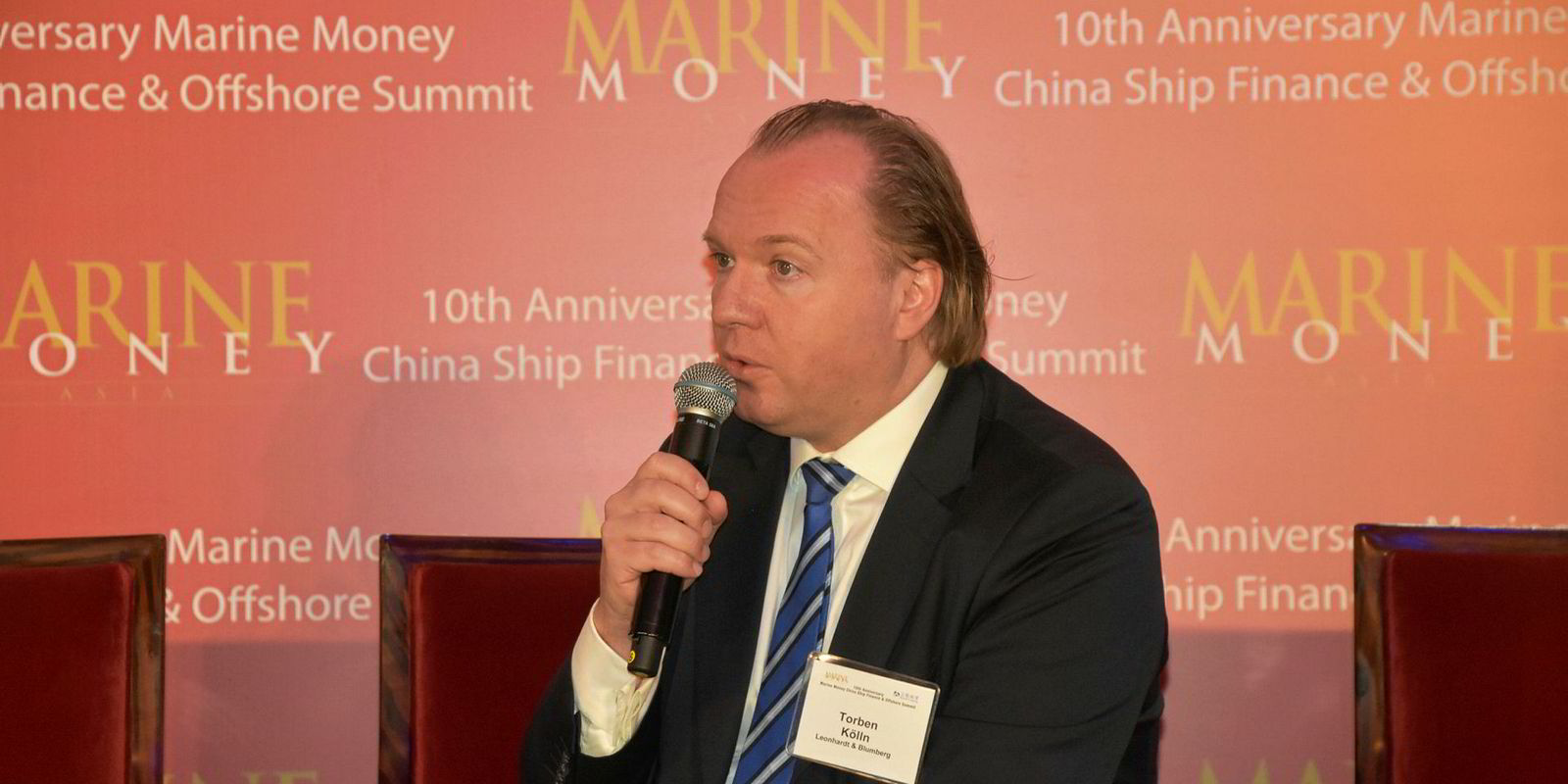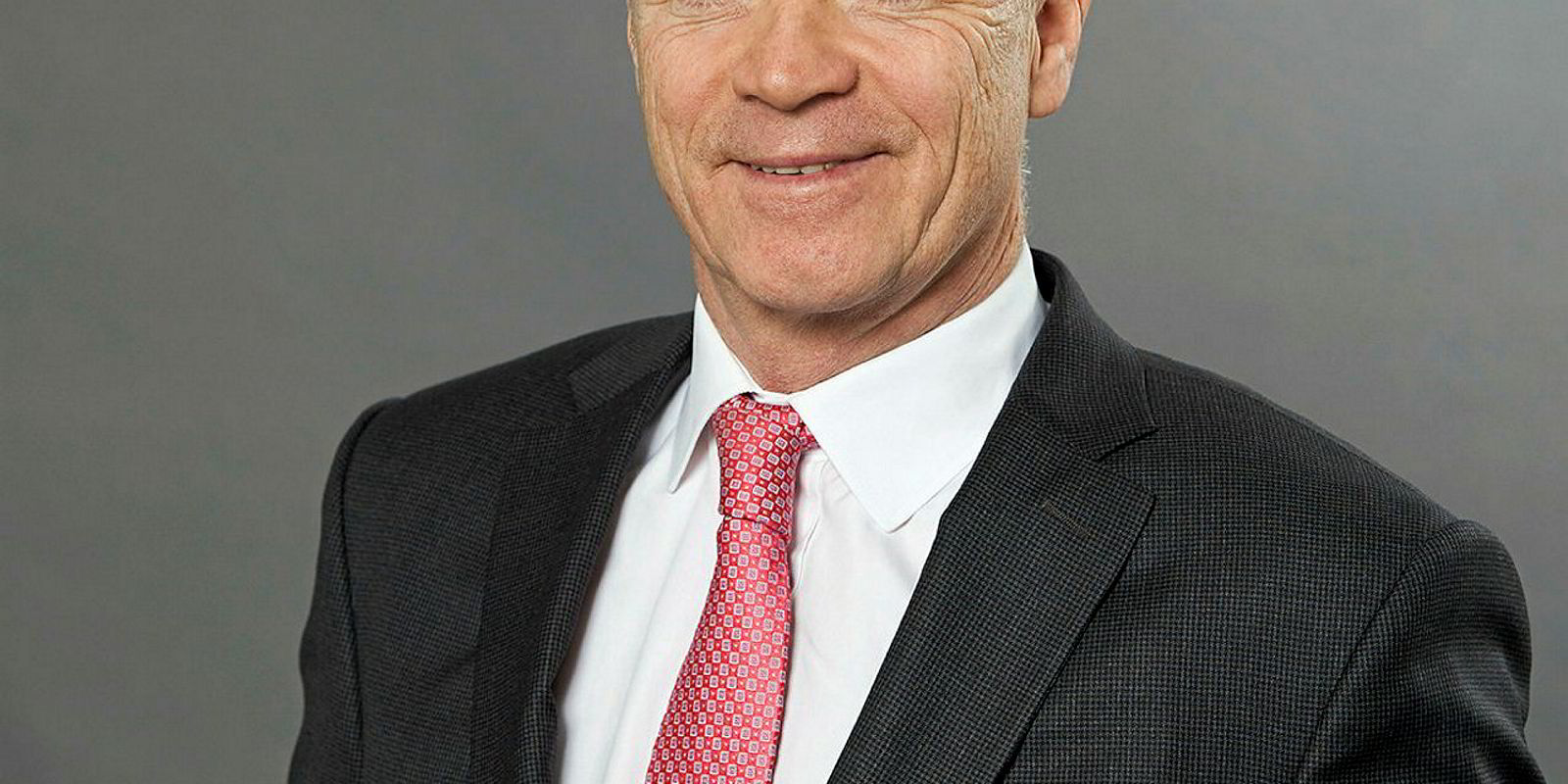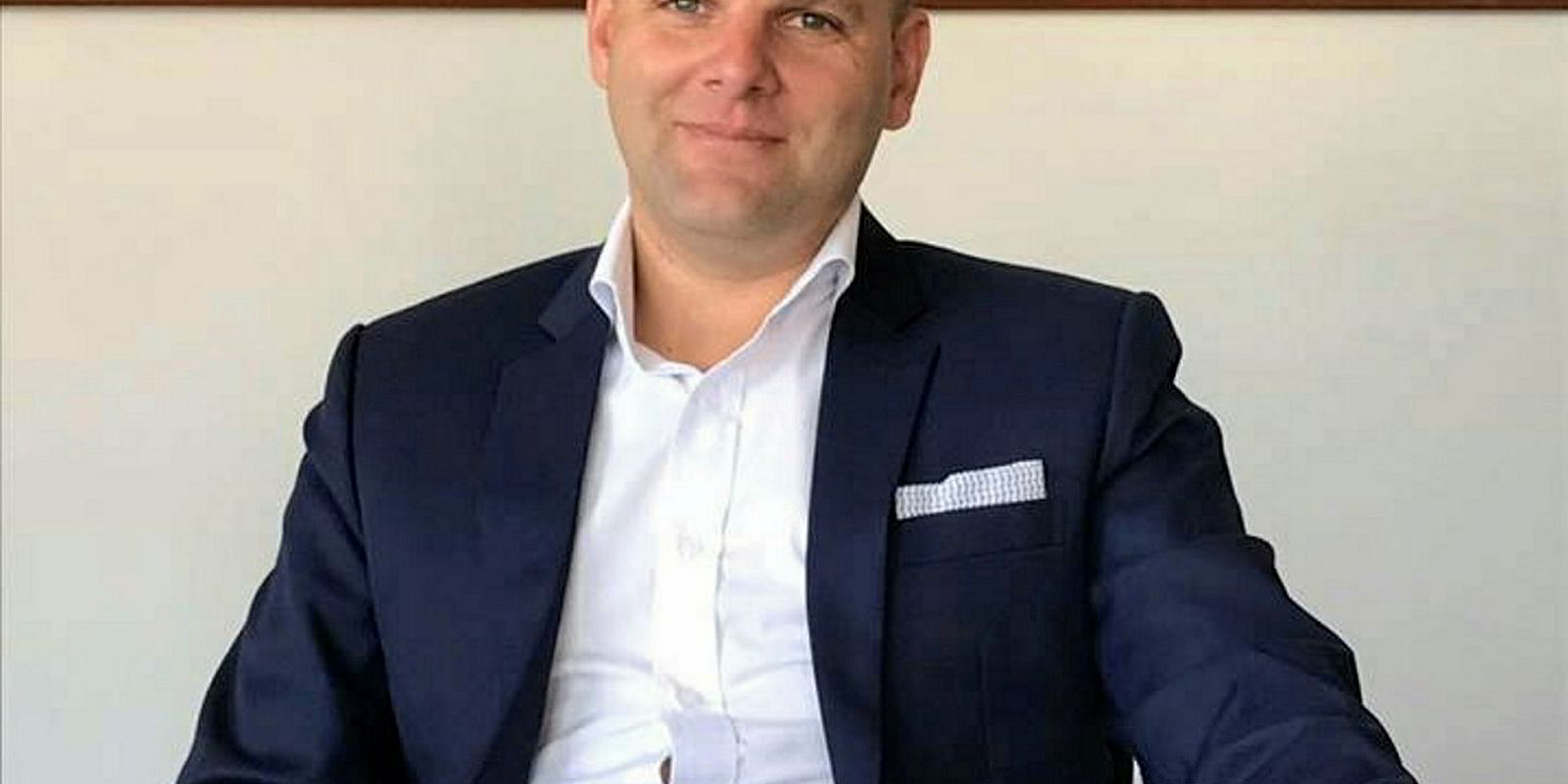Container shipping needs more consolidation to prevent owners from undercutting one another, a leading tonnage provider believes.
But Torben Kolln, managing director of Hamburg’s Leonhardt & Blumberg Shipmanagement, said shipowners remain reluctant to join the growing number of pools.
“Still lots of owners want to do their own chartering business, whereas it would make more sense to give their chartering business to these large consolidated interests,” he said.
A handful of larger containership chartering ventures have been established in the German market in the past two years.
Kolln argued that participating in these consolidated units is better than handling chartering alone, saying it would prevent pool managers from being undercut in the market by owners with smaller fleets.
Leonhardt & Blumberg Shipmanagement provides 31 ships of around 1,700 teu each, making it the largest tonnage provider in the handysize containership segment.
But that is too few to act as a counterweight to giant liner operators in the same charter market.
“Clearly on the owners’ side we need to have more consolidation,” Kolln said, arguing that the best solution is a revenue-sharing pool, including Hanseatic Unity Chartering, where his company pools its vessels.
Still independent
“You remain as an independent owner even though you have given your commercial management to a pool,” he said.
The pools have stabilised earnings for ships in the Leonhardt & Blumberg Shipmanagement fleet, where revenues have yet to fall below operating expenses, according to Kolln.
The company manages 27 standard Wenchong 1,700-teu vessels — the workhorses of the handysize container sector — as well as four 1,700-teu eco ships of a more modern design. These newer units include the gearless vessels Olympia and Ophelia (both built 2017), which earn a daily premium of $3,000 to $4,000 over the older designs.
Its fleet includes seven 1,200-teu ice-class ships, as well as four 3,600-teu geared vessels that operate in the African trades.
These are commercially managed by Hanseatic Unity Chartering, with partners Reederei Nord, Schulte Group, Borealis Maritime and Asiatic/Atlantic Lloyd.
Together, the Hanseatic Unity Chartering partners operate between 50 and 60 boxships in the handysize segment, where Kolln is optimistic about the prospects.
A reduction in spot vessels has helped push up charter rates for 1,700-teu containerships in recent weeks, although they remain short of what he believes are “sustainable” levels of $10,000 to $11,000 per day.
Kolln argued that the supply side for the handysize sector looks “manageable”, while adding that scrapping is likely to pick up and the market has no need for newbuilding orders.
“Transportation is cheap,” he added. “We don’t have a cost issue. What we have is an income issue. We have too much capacity in the market.”
The average age of his company’s boxship fleet is less than 10 years, but well-maintained older designs will still be employable, Kolln said.
Scrubbers do not feature in the fleet, partly due to concerns over the availability of high-sulphur heavy fuel oil. But the systems have been installed on two 1,025-teu ice-class vessels that trade within the sulphur emissions control areas between Rotterdam and northern Sweden.





